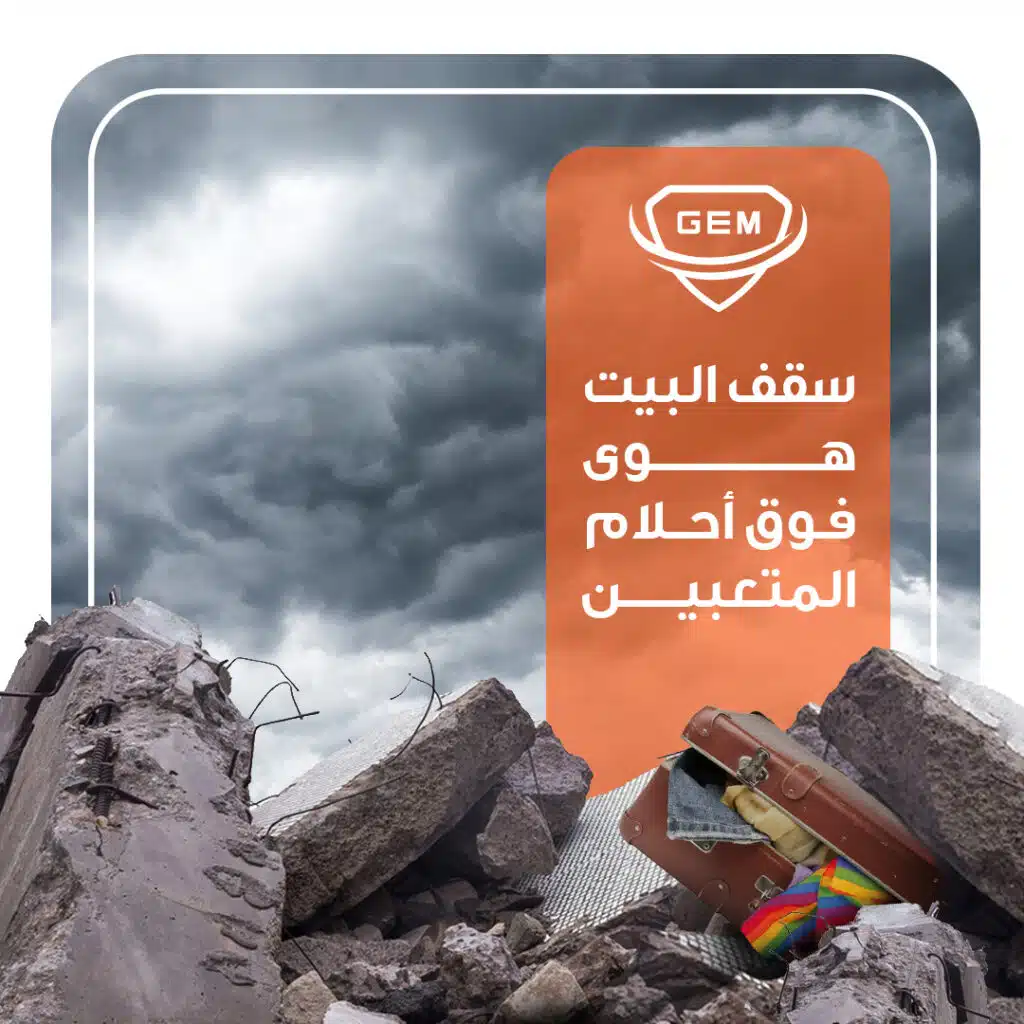In the past few months, I interviewed several members of the LGBTQIA community in northern and north-western Syria, to shed the light on an entirely overlooked community, in a land marked by one direction and one color. My aim was to break the stigma surrounding them and highlight their existence in this area, which is isolated from the rest of the world.
However, meticulous calculations are not guaranteedd that the outcomes will align with expectations.
On 6 February 2023, an earthquake with a magnitude of 7.7 hit southern Turkey and northern Syria, followed by another of 7.6 magnitude and several violent tremors, leaving huge human and financial losses in the two countries. This caused a long moment of silence, which prevented us from publishing the report.
Aftershocks and collective obituaries
A few hours after the disaster, collective mourning of entire families and groups started. Those who witnessed the earthquake did not realize immediately what had just happened. It took a few hours for the picture to become clear and the minds to being to process.
From Syria to Turkey, the massive loss of lives left no one unscathed, for those who physically survived suffered the pain of loss.
Rafi, a 24-year-old gay man, lives like most of the marginalized members of the LGBTQIA community in north-western Syria. Sami al-Aghbashi interviewed him as part of his investigative report for GEM.
“My life is very hard. My family does not respect my unique personality, and even my close friends laugh at me because of my female behavior, as they call it,” Rafi told GEM.
“I graduated from a healthcare institute with good grades, but I preferred not to work here, because I don’t want to stay here and can’t imagine my future in this region. The community does not accept me and I don’t expect people to change. This is what they’re like, and I’m sure they won’t change,” Rafi said.
“I tried several times to reach Turkey, and I was hoping to go to Canada, where I can live freely and safely as I hear, but all my attempts failed. I agreed with a smuggler to take me to Turkey and left home without telling my family, but I was beaten at the border and had to return,” he added.
Urgent needs are no longer urgent
“I need to start a new life. My life here is miserable. I want to be free to express myself, with no pressure. I want to feel safe, but all I feel right now is fear,” Rafi said.
“I hope someone hears my call and assists me. I can’t reveal my identity which will put me in danger. I don’t know where to go and what to do to get out of here. I read a lot on the internet about the lives of gay people in other countries, and I dream of living like them,” he added.
He goes on to add: “A Lebanese journalist named Joe al-Khawali came out to everyone. What a hero! How did he dare?”
“Sometimes I think I want to do the same when I leave. I can’t imagine the reaction of my family and friends, but I need help to be able to do that. Perhaps Joe found a supportive atmosphere, but it’s not the same for me. When Joe came out, my friends were swearing at him, which made me afraid and I just wanted to migrate.”
“I want to travel. I want to live. I want to be free. I want a new country, new friends, and new people. I’m tired of everything.” Rafi concluded.
On 8 February, the bodies of Rafi and some of his family members were recovered from under the rubble in the northwestern town of Harem.
His soul traveled long before his body could, but his voice will live to remind us of the need for all LGBTQIA members in Syria to live freely and safely.
May all the souls of the earthquake victims rest in peace, regardless of their ethnicity and sexual orientation.
Sami al-Aghbashi, GEM

